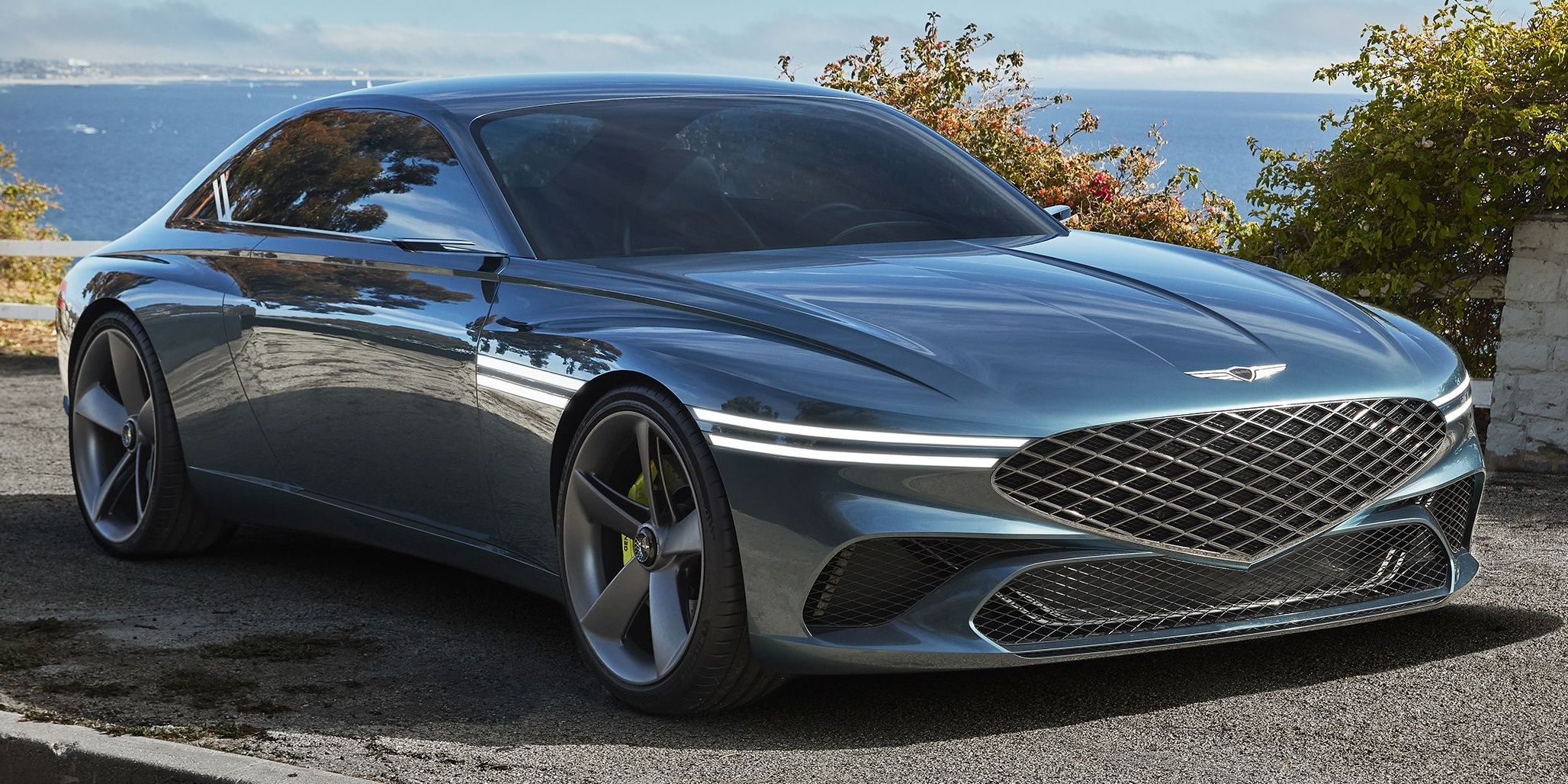Genesis automobiles have become a prominent player in the luxury car market, offering vehicles that blend cutting-edge technology with exceptional design. But who builds Genesis automobiles? This article will delve into the origins, manufacturing processes, and the team behind this prestigious brand, providing you with all the information you need to understand the Genesis story.
As a luxury car brand under Hyundai Motor Group, Genesis has carved out a niche for itself by delivering high-quality vehicles that compete with the world's top luxury automakers. The brand's commitment to innovation and excellence has earned it widespread acclaim, making it an attractive option for discerning car buyers.
In this article, we will explore the people, processes, and engineering behind Genesis automobiles. From the design studios to the manufacturing plants, you will gain a deeper understanding of the brand and its place in the global automotive industry. Let's dive in!
Read also:What Is Nellie Biles Ethnicity Exploring Her Background Achievements And More
Table of Contents
- The Genesis Brand: A Brief History
- How Genesis Automobiles Are Manufactured
- The Engineers and Designers Behind Genesis
- Technology Integrated into Genesis Vehicles
- Quality Control in Genesis Manufacturing
- Where Are Genesis Cars Made?
- Supply Chain and Partnerships
- Environmental Impact and Sustainability
- Future Plans and Innovations
- Conclusion
The Genesis Brand: A Brief History
Genesis was launched in 2015 as Hyundai Motor Group's dedicated luxury car division. The brand's name itself symbolizes a new beginning, reflecting its ambition to redefine luxury in the automotive industry. Initially, Genesis started as a luxury sub-brand of Hyundai, but it quickly evolved into a standalone entity, competing directly with established luxury brands like Mercedes-Benz, BMW, and Audi.
Since its inception, Genesis has garnered numerous accolades for its vehicles' design, performance, and value. The brand's flagship models, such as the G90 sedan and GV80 SUV, have been praised for their innovative features and luxurious interiors. Today, Genesis is recognized as one of the fastest-growing luxury car brands globally.
Key Milestones in Genesis History
- 2015: Genesis is officially launched as Hyundai's luxury division.
- 2016: The first Genesis-branded vehicle, the G90 sedan, is introduced.
- 2018: Genesis becomes a standalone luxury brand.
- 2020: Genesis introduces its first SUV, the GV80.
How Genesis Automobiles Are Manufactured
The manufacturing process of Genesis automobiles is a testament to the brand's dedication to quality and precision. Each vehicle undergoes rigorous testing and inspection to ensure it meets the highest standards. From the initial design phase to the final assembly, every step is meticulously planned and executed.
Steps in the Manufacturing Process
- Design and Development: The design process begins with sketches and digital renderings, followed by clay modeling to finalize the vehicle's appearance.
- Prototyping: Engineers create prototypes to test the vehicle's performance, safety, and functionality.
- Assembly: The assembly line is where the vehicle's components are put together, with robots and human workers collaborating to ensure precision.
- Quality Control: Each vehicle undergoes extensive testing, including road tests, to ensure it meets Genesis's high standards.
The Engineers and Designers Behind Genesis
Behind every Genesis automobile is a team of highly skilled engineers and designers who bring the brand's vision to life. These professionals come from diverse backgrounds, bringing a wealth of experience and expertise to the table. Their collaborative efforts result in vehicles that are not only beautiful but also functional and technologically advanced.
Key Roles in Genesis Development
- Chief Designer: Responsible for the overall aesthetic direction of Genesis vehicles.
- Engineers: Focus on the technical aspects, ensuring the vehicles are safe, efficient, and reliable.
- Software Developers: Work on integrating cutting-edge technology into the vehicles' infotainment and safety systems.
Technology Integrated into Genesis Vehicles
Genesis automobiles are packed with the latest technology, offering drivers a seamless and enjoyable experience. From advanced driver-assistance systems (ADAS) to state-of-the-art infotainment systems, Genesis vehicles are designed to cater to the modern driver's needs.
Notable Technologies in Genesis Cars
- Genesis Active Safety Technology (GAS): Includes features like lane-keeping assist, adaptive cruise control, and automatic emergency braking.
- Infotainment Systems: Equipped with large touchscreen displays and voice recognition capabilities.
- Electric Vehicle (EV) Models: Genesis is expanding its lineup to include more electric vehicles, such as the GV60.
Quality Control in Genesis Manufacturing
Quality control is a critical aspect of Genesis's manufacturing process. The brand employs a multi-step quality assurance system to ensure that every vehicle leaving the factory meets its stringent standards. This includes rigorous testing for safety, performance, and durability.
Read also:Cindy Blackman Age Exploring The Life And Legacy Of A Drumming Legend
Quality Control Measures
- Vehicle crash tests to evaluate safety.
- Road tests to assess handling and comfort.
- Inspection of materials and components for defects.
Where Are Genesis Cars Made?
Genesis automobiles are manufactured in several locations around the world, with the majority of production taking place in South Korea. The brand's primary manufacturing facilities are located in Ulsan and Asan, where skilled workers and advanced machinery work in tandem to produce high-quality vehicles.
Global Manufacturing Facilities
- Ulsan Plant: One of the largest automobile manufacturing plants in the world, producing a range of Genesis models.
- Asan Plant: Specializes in producing Genesis SUVs, including the GV80 and GV70.
- Overseas Facilities: Genesis also has manufacturing partnerships in other countries to meet global demand.
Supply Chain and Partnerships
The supply chain for Genesis automobiles is a complex network of suppliers and partners who provide the necessary components and materials. Genesis works closely with these partners to ensure timely delivery and maintain quality standards.
Key Supply Chain Partners
- Bosch: Supplies advanced electronic systems for Genesis vehicles.
- Continental: Provides braking and suspension systems.
- LG Electronics: Collaborates on infotainment and electric vehicle technologies.
Environmental Impact and Sustainability
Genesis is committed to reducing its environmental impact and promoting sustainability. The brand has set ambitious goals to transition to electric vehicles and improve the efficiency of its manufacturing processes. By focusing on sustainable practices, Genesis aims to lead the way in eco-friendly luxury automotive production.
Sustainability Initiatives
- Investment in renewable energy sources for manufacturing plants.
- Development of electric and hybrid vehicle models.
- Recycling programs for materials used in production.
Future Plans and Innovations
Looking ahead, Genesis has exciting plans to expand its product lineup and introduce new technologies. The brand is committed to staying at the forefront of innovation, ensuring that its vehicles remain competitive in the rapidly evolving automotive market.
Upcoming Developments
- Introduction of more electric vehicle models.
- Enhancements to autonomous driving capabilities.
- Expansion into new markets globally.
Conclusion
In conclusion, Genesis automobiles are built by a dedicated team of engineers, designers, and skilled workers who are committed to delivering exceptional quality and innovation. From its humble beginnings as a Hyundai sub-brand to its current status as a global luxury car manufacturer, Genesis has proven that it can compete with the best in the industry.
We encourage you to explore the Genesis lineup further and consider what these vehicles have to offer. If you enjoyed this article, please share it with others and explore more content on our website. Your feedback and engagement help us continue to provide valuable information to our readers.


